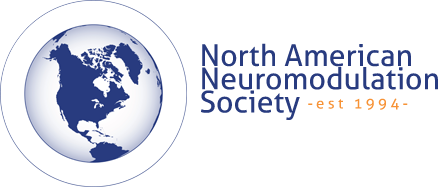This content was medically reviewed by Baher S. Yanni, MD, on February 8th, 2021.
Pain can be distressing, especially if you’re unsure what brought it on. If you are experiencing back and hip pain, these aggravating symptoms are usually the result of overuse or injury. The frustrating aspect of combined hip and back pain is that many different causes could be to blame.
Back pain can easily be mistaken for hip discomfort. The joint of your hip is near your spine, so certain health conditions and injuries affect the nerves in both areas. That means the culprit of your hip and back pain could overlap.
Here are eight back and hip pain causes:
1. Muscle Strain or Sprain
Sprains and strains are the most common causes of pain around your back and hip region. Sprains result from torn or overstretched ligaments, while strains impact the muscles or tendons. These injuries can occur when you lift something heavy. They might also occur due to a sports injury, a fall or simply twisting your body in an awkward way.
2. Tight Hip Flexors
If you sit for long periods daily, your hip and back pain may be from tight hip flexors. These muscles are responsible for a wide range of motion in your legs and hips. When they’re overly tight or stiff, you can experience back and hip pain.
3. Pinched Nerve
The nerves in your spine and other body parts can become compressed by surrounding bones, muscle or tissue. Because the pressure interrupts proper nerve function, a pinched nerve can lead to discomfort or shooting pain. So, your aching back and uncomfortable hips may result from a pinched nerve in your back, spine or hip.
4. Herniated Disc
Also called a slipped or ruptured disc, this condition occurs when one of the cushioning discs that protect your vertebrae slips out of place. This change can put pressure on nearby nerves, causing them to become irritated or inflamed. Often, those with herniated discs experience tingling or burning pain in their lower back that can extend to the hips or legs.
5. Arthritis
Arthritis is an inflammatory condition that impacts one or more of your joints. Osteoarthritis can lead to a breakdown of cartilage in the spine. Without this protective cushioning, the spinal bones can rub together and put pressure on the nerves, thus impacting your lower back and hips.
6. Sacroiliac Joint Dysfunction
The sacroiliac or SI joint connects the lower portion of your spine to the pelvis. The joint absorbs shock experienced between your upper body and legs. A strain or injury to the SI joint can lead to radiating hip and back pain. SI dysfunction can also occur when this joint moves too much or too little, leading to pain in the back and hips.
7. Sciatica
Sciatica is when your sciatic nerve experiences an injury or irritation. Your body has two sciatic nerves running through the hip, buttocks and legs. Since the sciatic nerves cover such a large portion of your body, you may experience pain in the legs and feet as well as your lower back and hips.
8. Spinal Lumbar Stenosis
Spinal lumbar stenosis occurs when the spinal canal in the lower back shrinks. This condition is most common in older adults due to degenerative issues and can result in back and leg pain as well as feelings of leg numbness and weakness.
When to See a Doctor for Hip and Back Pain
If you’re experiencing back and hip pain, your first step should be to try conservative approaches, such as applying ice and heat or gentle stretching. However, if you try these options and they don’t work or you’re experiencing extreme lower back and hip pain, you will want to see the team at Spine Institute of North America as soon as possible. Some other reasons to see a medical doctor include:
- You have lost weight suddenly or without explanation.
- Your arms and legs feel weak.
- You experience a loss of control in your bladder or bowels.
- Your back and hip pain is the result of trauma.
- You are experiencing a fever as a result of your back pain.
What Can I Expect When I Go to Spine INA for Treatment?
At Spine INA, we want to gather a complete picture of your medical history and symptoms to determine the best treatment plan for your needs. When you come to our office for treatment, we will begin by asking questions about your medical history to learn why your lower back and hips hurt.
After asking these questions, we will move into a physical exam where we check for any signs of tenderness, your spine’s range of motion and your current reflexes. Based on this information, we will work with you to create a personalized treatment plan.
Find Back and Hip Pain Relief at Spine INA
Back and hip pain should not inhibit your day-to-day life. If you feel discouraged because of your chronic symptoms, it’s time to schedule your appointment at Spine INA. Our experienced team will diagnose your back and hip pain and work with you to develop an individual treatment approach so that you can get back to enjoying your life. Contact us today to learn more.








